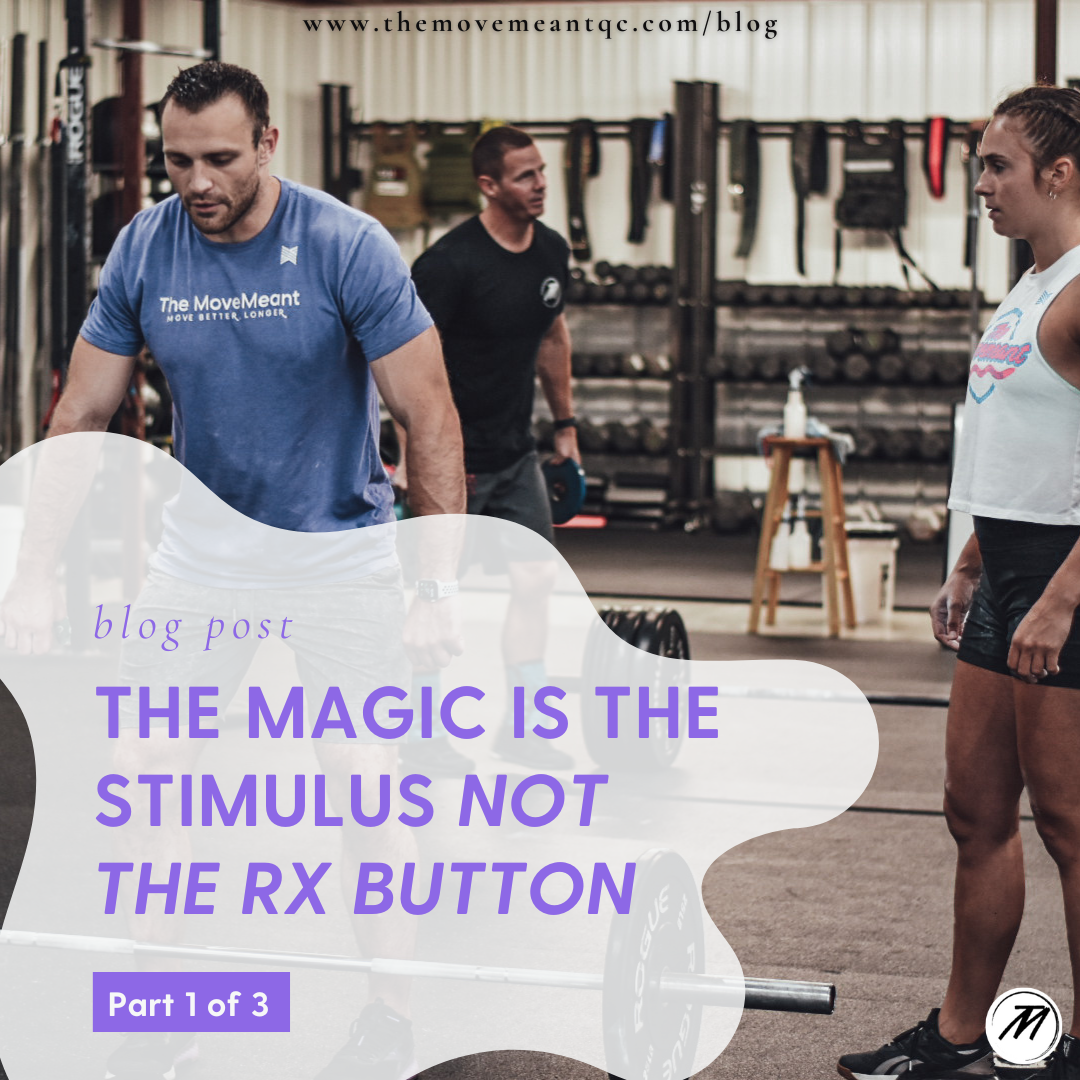THE MAGIC IS THE STIMULUS, NOT THE RX BUTTON! Part 1


Part 1 of 3 by Coach Mike
Setting an Rx standard is a necessity in the competition side of this space. In order to have a competition, you need to fix as many variables as possible. If Susan has an 85-lb barbell, but you allow Karen to use 55-lbs, you have an apples to oranges comparison. If Susan does the workout in five minutes and Karen does the same movements at the lighter weight and beats her by 30 seconds, you can't say Karen "won" the competition. She did a lighter weight. Most observers would be more impressed that Susan did the same workout 30-lbs heavier and only lost 30 seconds to Karen.
In a class environment, Karen absolutely won. And so did Susan. Both athletes completed the same set of movements in roughly the same time period and had a similar aerobic experience (or "stimulus", as coaches will often say). If I bump Karen up to the same barbell Susan used, and it takes Karen fifteen minutes to complete it, Karen is no longer doing the same workout even though on paper it is the same. Karen and Susan's experience at the 85-lb barbell is similar to comparing the 800m sprint to a 5K run. Both are running, but they aren't in any way the same experience.
The stimulus is the magic. When our workouts are written, there are two metrics in mind: volume (total # of reps of a movement pattern in a week) and the time domain. Our longevity track helps scale down the volume, but the key thing to pay attention to is the target times for the workout (and if your coach forgets to mention it, it's completely okay to ask!). Those targets aren't always 100% perfect, but if you're nearly always falling outside of that range and getting time capped, the most likely reason is that you are turning what's supposed to feel like an 800m sprint into a 5K. You are choosing weights that are too heavy (or too light, more on that later) for you to get the intended stimulus.
This is not an exact science. Not for you. And not for your coach. You will get it wrong and they will get it wrong, too. That's part of the process, but if you start thinking more about the stimulus/time domain and focus less on trying to go Rx, you will make more progress, your body will feel less beat up, and your risk of injury goes down tenfold.
-Coach Mike